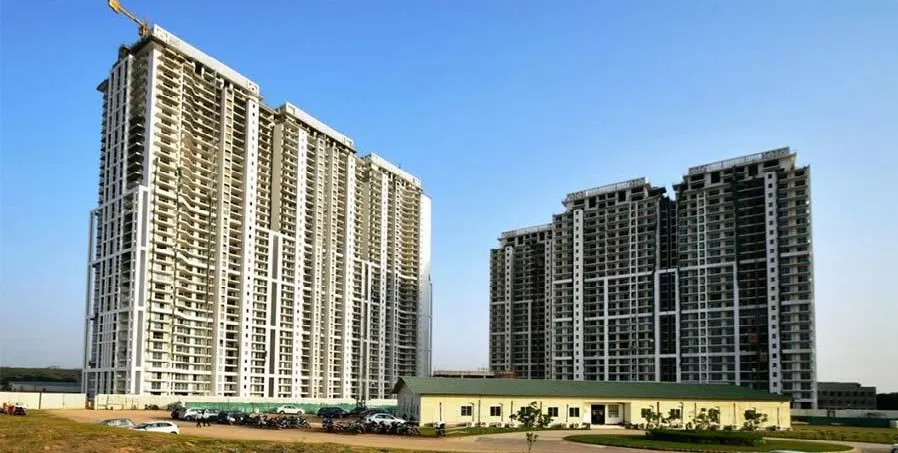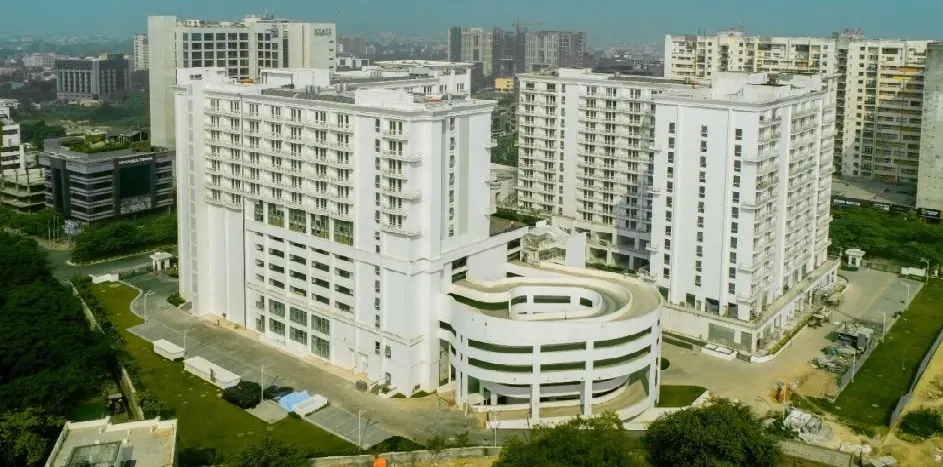The real estate market is an intricate reflection of economic health, where each transaction holds a story of market trends and economic stability. In recent times, the Delhi/NCR region has been at the forefront of discussions due to a significant decline in its office space leasing transactions. According to realty consultants CBRE, the region witnessed a staggering 54% decline in gross leasing transactions of office space during the April to June period. This downturn has been attributed to the prevailing global economic uncertainties. In this blog post, we delve into the factors that have led to this decline, the impact on the real estate sector, and potential strategies to navigate through these challenging times.
The CBRE Report: Unveiling the Numbers
In the realm of real estate, numbers don’t just represent figures; they tell a story of economic shifts and market dynamics. The CBRE report paints a vivid picture of Delhi/NCR’s office space leasing scenario, revealing a substantial 54% decline in gross leasing transactions. This decline brought the leasing activity down to 1.9 million square feet during the April to June period. Such a significant drop cannot be brushed aside as a mere blip; it signifies a deeper-rooted issue. To understand the implications, it’s essential to delve into the factors causing this decline.
Factors Behind the Decline
- Global Economic Uncertainties:
The global economic landscape has been grappling with uncertainties, largely fuelled by the ongoing COVID-19 pandemic. The pandemic’s far-reaching impact has led to business disruptions, remote working trends, and cautious business expansions. These factors have prompted businesses to reconsider their office space requirements, leading to a decline in leasing activities. - Remote Work Dynamics:
The pandemic has reshaped the way businesses operate. Remote work gained prominence, and many companies have embraced hybrid work models. As a result, the need for extensive office spaces has decreased, causing a slowdown in leasing transactions. Companies are now focusing on optimizing existing spaces to accommodate flexible work arrangements. - Cost-Cutting Measures:
Economic uncertainties have compelled companies to adopt cost-cutting measures. Office space leasing constitutes a significant portion of operational costs. With financial prudence in mind, businesses are scrutinizing their real estate expenditures, resulting in reduced demand for new office spaces. - Market Volatility:
Real estate decisions are intricately tied to market stability. The volatile economic conditions have made businesses cautious about committing to long-term leases. The uncertainty regarding future economic prospects has led to a ‘wait and watch’ approach, affecting leasing activities.
Impact on the Real Estate Sector
The decline in gross leasing transactions in Delhi/NCR has reverberated throughout the real estate sector, affecting various stakeholders:
- Developers:
Real estate developers are facing the brunt of the leasing decline. A decrease in demand directly impacts their revenue streams. With unsold inventory piling up, developers are compelled to reassess their pricing strategies and explore innovative approaches to attract tenants. - Landlords:
Landlords are facing challenges in maintaining rental yields. The reduced demand for office spaces has led to higher vacancies and downward pressure on rental rates. Landlords are now forced to consider tenant-friendly terms to retain occupants and attract new businesses. - Investors:
The declining leasing activities have raised concerns among real estate investors. Reduced demand affects the potential returns on investment, making the market less attractive. Investors are likely to adopt a cautious approach until clearer signs of economic recovery emerge.
Navigating Through Uncertain Times
While the current scenario may seem daunting, it’s important to recognize that challenges also bring opportunities. Real estate players can adopt strategic measures to navigate through these uncertain times:
- Adaptability:
Real estate developers can explore the adaptive reuse of existing office spaces. Converting traditional office layouts into flexible and multi-functional spaces that cater to the evolving needs of businesses can help attract tenants seeking customized solutions. - Focus on Technology:
Integrating technology-driven solutions into office spaces can enhance their appeal. Smart building features, energy efficiency, and advanced communication infrastructure can position properties as future-ready, appealing to tech-savvy businesses. - Flexible Lease Terms:
Landlords can consider offering flexible lease terms to align with the changing dynamics of the business world. Shorter lease durations or provisions for expansion/contraction of space can attract businesses looking for adaptable solutions. - Portfolio Diversification:
Investors can consider diversifying their real estate portfolios beyond traditional office spaces. Exploring opportunities in sectors like logistics, warehousing, and residential real estate can help mitigate risks associated with market fluctuations.
The 54% decline in gross leasing transactions of office space in Delhi/NCR during the April to June period, as reported by CBRE, serves as a testament to the far-reaching impacts of global economic uncertainties. The pandemic-induced remote work dynamics, cost-cutting measures, and market volatility have collectively contributed to this decline. While the challenges are undeniable, the real estate sector can emerge stronger by embracing adaptability, technology, flexible leasing terms, and portfolio diversification. By aligning strategies with the evolving needs of businesses and investors, the industry can navigate through these uncertain times and pave the way for a resilient future.


